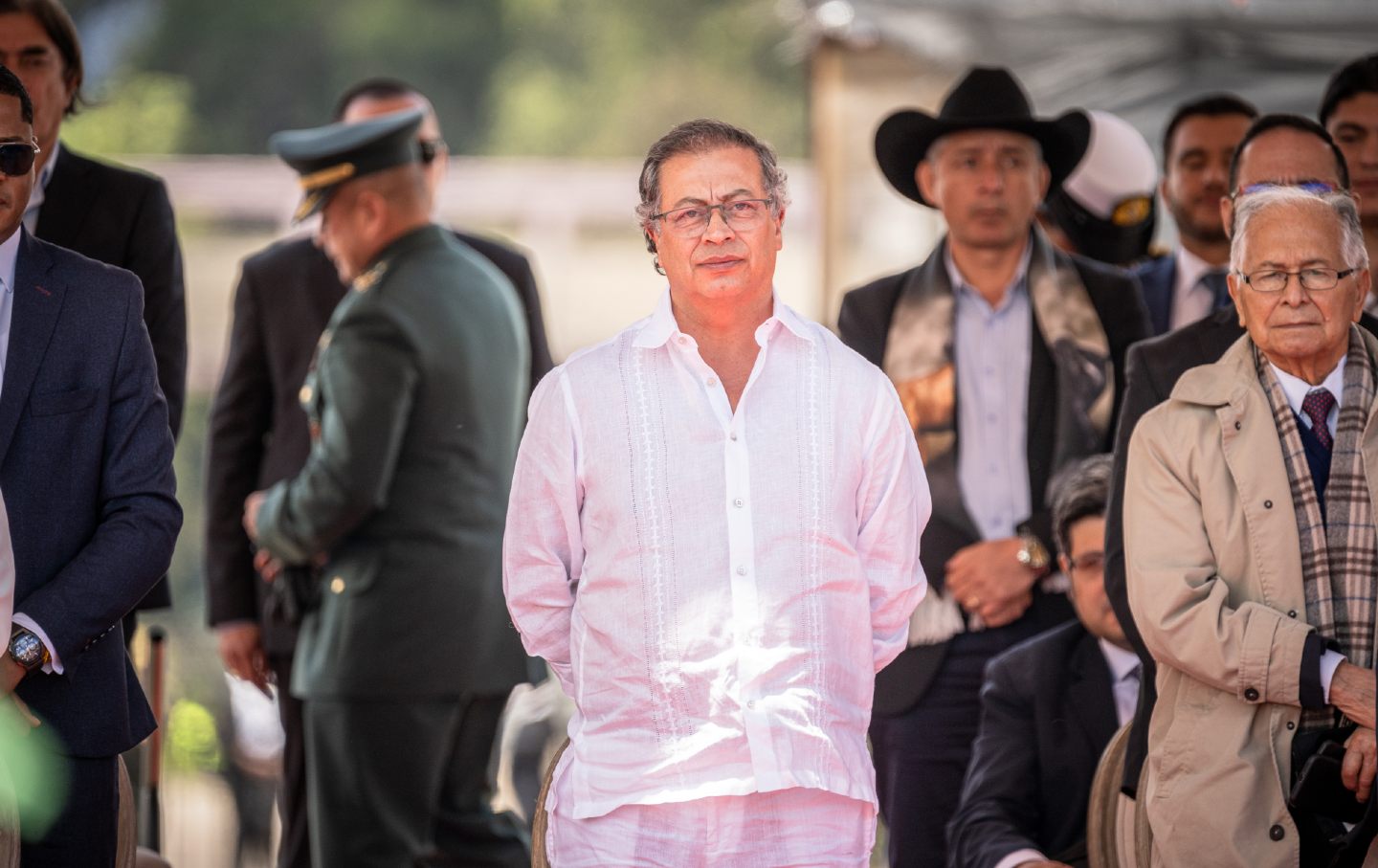Latin America
Related: About this forumColombia's congress sinks Petro's budget finance bill
by Adriaan Alsema
December 12, 2024
Colombia’s Congress sunk the government’s budget finance bill, which sought to close a $2.8 billion budget gap. The congressional economy commissions voted to discard the bill weeks after voting against multiple budget proposals.
President Gustavo Petro, who tried to significantly increase public spending, said that the House and Senate commission votes were “a blow to the Colombian people.” The president and his finance minister have been trying to move away from the neoliberal political orthodoxy that has dominated government spending since the 1970’s.
Petro’s progressive spending plan is fiercely opposed by the conservative and far-right opposition that insist on austerity to make up for increased spending during the coronavirus crisis in 2020 and 2021.
Congress’ decision all but forces the government to move away from its budget plans, which prioritized peace building and poverty reduction.
More:
https://colombiareports.com/colombias-congress-sinks-petros-budget-finance-bill/
~ ~ ~
August 15, 2024
It’s Hard to Be a Leftist Leader in Colombia
Since taking office in August 2022, Colombia’s President Gustavo Petro has pursued an ambitious agenda—with mixed results.
Gabriel Hetland

Colombian President Gustavo Petro looks on before the 2024 Colombia Independence Day Parade on July 20, 2024, in Bogotá.
(Diego Cuevas / Getty Images)
Bogotá—Manuel Martínez, a technician in Colombia’s Finance Ministry, is under no illusions about the immense challenges his boss, Gustavo Petro, faces as the country’s first leftist president. “The space for change is very limited. We try to understand where the cracks are and push on those that will bear the most fruit.” This is an apt—if mixed—metaphor of not only Martínez’s work, which focuses on how to finance Colombia’s “energy transition,” but also Petro’s first two years in office, a time marked by some notable successes—and several failures.
Petro’s June 2022 victory shook Colombia, which has been ruled by conservative forces for most of its 200-year republican history. Petro’s path to office was atypical. At age 17, he joined an urban guerrilla force, the 19th of April Movement. This force demobilized in the late 1980s, and Petro helped convert it into the M-19 Democratic Alliance political party. After stints in Colombia’s Chamber of Representatives and Senate, Petro served as mayor of Bogotá. He came second in the 2018 presidential election, which Iván Duque, the far-right disciple of ex-president Álvaro Uribe, won. In 2022 Petro prevailed alongside his running mate, Francia Marquez, a human rights and environmental activist and the first Afro-Colombian vice president.
Since taking office on August 7, 2022, Petro has pursued an ambitious agenda, with mixed results. One reason for this is that Petro’s Historic Pact, a coalition of left and center-left parties, has never held a congressional majority. To form one, Petro brought centrist and right-wing parties into his first government. This allowed him to pass a progressive tax reform in November 2022, his most important legislative victory to date. The law increased taxes on Colombia’s top earners and established higher royalties on the extraordinary profits in the extractive industries. Colombia’s Finance Ministry estimated that the new law would increase government revenues by 1.3 percent of GDP in 2023 and 2024. Petro’s grand coalition fell apart in April 2023 amid the president’s push for multiple reforms simultaneously, including a divisive overhaul of the health sector.
Many criticized Petro for this strategy. A government official, who requested anonymity to speak openly, told me, “It was an error to schedule all the reforms at the same time in Congress, and the health reform was the hardest.” The crux of the issue was Petro’s push to increase the state’s role, and diminish that of the private sector, in financing and providing healthcare, with centrist parties strongly opposing this. Without a congressional majority, Petro has been forced to compromise significantly to pass any legislation. According to this official, “Now reforms are advancing but with many concessions. For instance, the labor and pension reforms. They both started out as good, progressive reforms, but to pass them there have been huge concessions, making them less good.”
César Bowley Castillo, a scholar of Colombian social movements who is from Bogotá and pursuing a sociology PhD at UCLA, feels Petro “did the right thing by breaking the coalition,” since it led to a more ideologically coherent government. But he agrees that Petro’s reforms have been watered down and “designed to be passed by this Congress. Doing these in-between things points to the contradictions of having a reformist government under capitalism.”
More:
https://www.thenation.com/article/world/gustavo-petro-colombia/